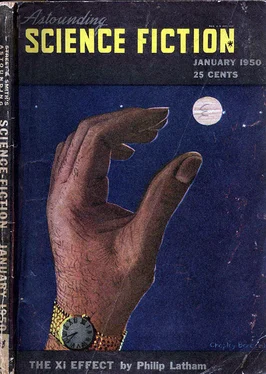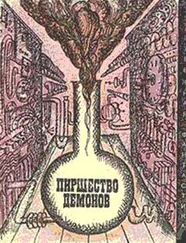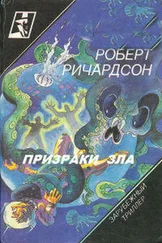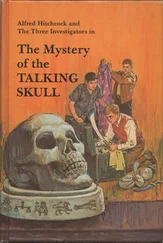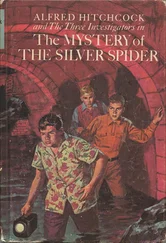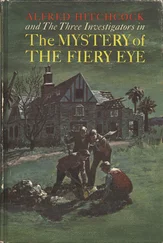Роберт Ричардсон - The Xi Effect
Здесь есть возможность читать онлайн «Роберт Ричардсон - The Xi Effect» весь текст электронной книги совершенно бесплатно (целиком полную версию без сокращений). В некоторых случаях можно слушать аудио, скачать через торрент в формате fb2 и присутствует краткое содержание. Город: New York, Год выпуска: 1950, Издательство: John Wood Campbell, Jr., Жанр: Фантастика и фэнтези, на английском языке. Описание произведения, (предисловие) а так же отзывы посетителей доступны на портале библиотеки ЛибКат.
- Название:The Xi Effect
- Автор:
- Издательство:John Wood Campbell, Jr.
- Жанр:
- Год:1950
- Город:New York
- ISBN:нет данных
- Рейтинг книги:4 / 5. Голосов: 1
-
Избранное:Добавить в избранное
- Отзывы:
-
Ваша оценка:
- 80
- 1
- 2
- 3
- 4
- 5
The Xi Effect: краткое содержание, описание и аннотация
Предлагаем к чтению аннотацию, описание, краткое содержание или предисловие (зависит от того, что написал сам автор книги «The Xi Effect»). Если вы не нашли необходимую информацию о книге — напишите в комментариях, мы постараемся отыскать её.
The Xi Effect — читать онлайн бесплатно полную книгу (весь текст) целиком
Ниже представлен текст книги, разбитый по страницам. Система сохранения места последней прочитанной страницы, позволяет с удобством читать онлайн бесплатно книгу «The Xi Effect», без необходимости каждый раз заново искать на чём Вы остановились. Поставьте закладку, и сможете в любой момент перейти на страницу, на которой закончили чтение.
Интервал:
Закладка:
The Xi Effect
by Philip Latham
For a week the team of Stoddard and Arnold had met with nothing but trouble in their solar infrared exploration program. First the lead sulfide photo-conductive cell had refused to function. Next an electrical storm—practically unknown in September—had put a crimp in the power line to the mountain observatory. And now for some wholly inexplicable reason the automatic recorder stubbornly refused to register a single quantum of radiation beyond 20,000 A.
“Here’s the end of the atmospheric carbon dioxide band at sixteen thousand,” said Arnold, indicating a point on their last record sheet. “You can see everything’s all right out to there. But beyond twenty thousand we aren’t getting a thing.”
Stoddard grunted, “That’s what comes of our big economy drive. Trying to cut expenses by buying from the dime store.” He walked over to the spectrometer and regarded it gloomily. It was the product of his own mind, an impressive series of slits and parabolic mirrors fed by a beam of sunlight from the top of the tower. When the optical setup was in perfect adjustment the apparatus would bring just the desired band of infrared radiation onto the sensitive surface of the photo- conductive cell. But obviously all was not in perfect adjustment.
“Maybe it’s in the amplifier this time,” Arnold suggested hopefully.
“Well, that’s the only part of this contraption that hasn’t balked on us so far,” said Stoddard. “Suppose you look it over while I check the cell again.”

For the next hour the astronomers probed the interior of the spectrometer as intently as two surgeons performing an exploratory laparotomy, passing tools back and forth and generally anticipating each other’s wants with scarcely a word spoken. For fifteen years they had thus worked together, one of the oddest looking scientific teams at the Western Institute of Technology, but one that had also proven itself amazingly productive. Stoddard at forty had the general shape of an old-fashioned beer barrel, with big hands, big feet, and a big protruding stomach. His half-closed eyes gave him a perpetually sleepy expression, a highly effective mask for one of the keenest minds in the business. Arnold, although nearly as old as his partner, somehow still gave the impression of youth. He was small and slight with an eager boyish expression that often caused visitors to mistake him for a graduate student embarking on his first research problem. Stoddard was the practical man of the firm who designed the apparatus for their various investigations and took the bulk of the observations. Arnold was the one who reduced the observations and discussed their theoretical significance.
“Find anything wrong?” Stoddard inquired at length, straightening up and replacing the cover that housed the cell assembly.
'‘Nothing worth mentioning,” said Arnold. “Think there’s time for another run?”
“Yeah, I guess so. Put the sun back on the slit and we’ll take another crack at her anyhow.”
But the second run proved no better than the first; in fact, if anything the cutoff occurred a trifle farther in toward the violet than before.
“I might as well take the whole works down to the laboratory for a complete overhaul,” Stoddard declared, looking at his brain-child as if he would like to heave it over the side of the mountain. He watched a cloud drift lazily across the disk of the sun projected against the slit. “Get any weather predictions on the radio this morning?”
Arnold gave him a quizzical glance. “Haven’t you heard yet? All the radio stations have been dead for more than a week.”
“What’s the matter with ’em?”
“Well, it’s really quite mysterious. Last Monday KLX faded out right in the middle of a program, and then stations farther up the dial began to be hit one after the other. For awhile all you could get were the amateurs and the police department. Now they’re dead, too.”
Stoddard, who regarded the radio as one of the major threats to his peace of mind, took the news philosophically. “Well, I’m glad to hear we aren’t the only ones having trouble these days. But I’ll bet my wife was sore when she couldn’t hear what happened to Priscilla Lane, Private Secretary, last night.”
Stoddard was in his laboratory in the basement of the Astrophysics Building at Western Tech hard at work on the wiring diagram for the amplifier system when Arnold came breezing in, his bright young face aglow with enthusiasm.
. “Guess what?” he exclaimed. “Friedmann’s in town. He’s agreed to give a talk this afternoon in Dickinson Hall on his theory of the Xi effect. You know Friedmann, don’t you?”
Stoddard shook his head. “Never heard of him.”
Arnold hooked one leg over the corner of the desk. “Well, in my opinion he’s the foremost cosmologist in the world today. He had so much trouble getting published at first that his reputation isn’t as big as it should be. Everybody thought his first paper was written by some crank until Eddington saw it and recognized its value immediately. Now Friedmann won’t send his articles to any of the regular journals. You’ve got to dig his stuff out of all sorts of queer places, like the Proceedings of the Geophysical Society of Venezuela or the Annals of the Portuguese Meteorological Union .”
“I know how he feels,” said Stoddard sympathetically.
“Well, I thought we should hear him because his theory might possibly have some bearing on our infrared observations last week.”
“Think I could understand him if I did hear him?”
“Oh, probably not but then that goes for a lot of the rest of us, too.”
Stoddard reached for the wiring diagram. “Well, I’ll see if I can manage it. But you know what I think of these high-powered theoretical fellows.”
Arnold laughed. “I’ve been briefed on that before.” He got up and started for the door. “Room 201 at four-thirty. I’ll save a seat for you.”
The meeting was already in progress when Stoddard opened the door and slipped to his seat without creating any more commotion than a horse backing into a stall. As usual, the front rows were occupied by the hardened campaigners among the faculty, the grizzled veterans of a thousand seminars: Fosberg and Ballantyne from the math department, Blacker and Tinsdale from the radiation laboratory, and Denning the nuclear physicist. The remainder of the audience in the rear was composed of a miscellaneous rabble of graduate students and professors from neighboring institutions of learning and culture.
“Who’s ahead?” asked Stoddard, sinking into the chair beside his partner.
“You should have heard Friedmann put old Blacker in his place a minute ago,” Arnold whispered with evident relish. “Fie sure slapped him down plenty that time.”
To Stoddard, all theoretical physicists were strange creatures far removed from the rest of mankind. It was his experience that they could be divided with remarkable uniformity into two types, A and B. A typical specimen of Type A, for example, is mentally accessible only with the greatest difficulty. As a general rule, he moves through life with the vague detached air of a confirmed somnambulist. Should you summon the courage to ask his opinion on a paper, he regards it with much the same expression of critical disapproval that a secondhand car dealer instinctively assumes when inspecting a battered automobile brought in for sale. Everything is in a pretty bad state. It is possible, however, that a little progress may be made along the following lines, et cetera. A pure Type B, on the other hand, gives the impression of being always on the point of boiling over. He trembles with suppressed excitement. One of his former pupils has just proposed a theory that constitutes a tremendous advance. Where there was only darkness before now all is sunshine and light. As soon as a few odds and ends are cleared up the whole problem will be practically solved, et cetera, et cetera.
Читать дальшеИнтервал:
Закладка:
Похожие книги на «The Xi Effect»
Представляем Вашему вниманию похожие книги на «The Xi Effect» списком для выбора. Мы отобрали схожую по названию и смыслу литературу в надежде предоставить читателям больше вариантов отыскать новые, интересные, ещё непрочитанные произведения.
Обсуждение, отзывы о книге «The Xi Effect» и просто собственные мнения читателей. Оставьте ваши комментарии, напишите, что Вы думаете о произведении, его смысле или главных героях. Укажите что конкретно понравилось, а что нет, и почему Вы так считаете.
